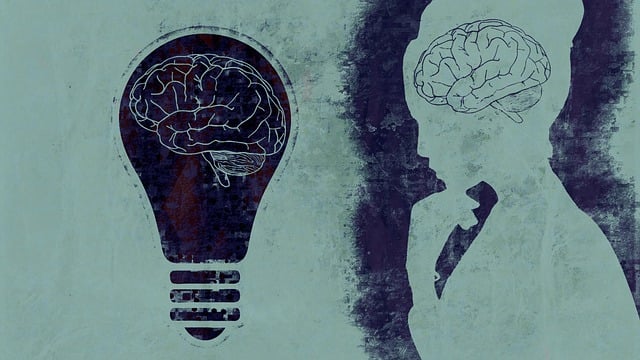In today's digital era, media representation of mental health, especially conditions like Longmont Relationship Issues Therapy, is crucial for public perception and understanding. While efforts to raise awareness have improved nuanced portrayals, many platforms still perpetuate stereotypes. The rise of Mental Wellness Podcasts is a step forward, but they often fail to delve into emotional healing processes. It's essential to advocate for responsible media that goes beyond superficial storylines, offering accurate insights into mental wellness challenges. This approach fosters inclusive communities and encourages professional support like Longmont Relationship Issues Therapy, which provides a holistic method for couples' emotional struggles, promoting individual well-being and healthier connections. Collaboration between media, mental health professionals, and community organizations is key to challenging stereotypes, enhancing empathy, and encouraging help-seeking behaviors.
In today’s media landscape, accurate representation of mental illness is crucial for fostering understanding and reducing stigma. This article explores the current state of mental health depiction in media, highlighting harmful stereotypes and misconceptions that perpetuate social barriers. We introduce innovative solutions like Longmont Relationship Issues Therapy, offering unique approaches to combat stigma. Furthermore, we propose strategies to enhance media portrayal and emphasize collaboration between media outlets, professionals, and communities for positive change. By addressing these challenges head-on, we can create a more inclusive and informed society.
- Understanding Mental Illness Representation in Media: The Current Landscape
- The Impact of Stereotypes and Misconceptions on Public Perception
- Longmont Relationship Issues Therapy: A Unique Approach to Addressing Stigma
- Strategies for Enhancing Accurate Mental Health Portrayal in Media
- Fostering Change: Collaboration Between Media, Professionals, and the Community
Understanding Mental Illness Representation in Media: The Current Landscape

In today’s digital age, media plays a significant role in shaping public perception about mental illness. The current landscape presents a mix of representations—from stigmatizing stereotypes to more nuanced and accurate portrayals. However, despite efforts to improve mental health awareness, many media platforms still fall short in accurately depicting the complexities of various mental health conditions. This is particularly evident in Longmont Relationship Issues Therapy contexts, where popular culture often oversimplifies or misrepresents emotional struggles.
The absence of diverse and authentic narratives can hinder understanding and empathy, perpetuating misconceptions. For instance, while there has been a rise in Mental Wellness Podcast Series Production focusing on mental health, many still lack the depth to explore Emotional Healing Processes and Mood Management effectively. As such, it’s crucial to advocate for more responsible media representation that goes beyond superficial storylines, offering viewers accurate insights into navigating mental wellness challenges—a step towards fostering inclusive communities and promoting professional support, like Longmont Relationship Issues Therapy.
The Impact of Stereotypes and Misconceptions on Public Perception

The media has long played a significant role in shaping public perception of mental illness. Unfortunately, stereotypes and misconceptions prevalent in popular culture often contribute to stigma and misunderstanding. Depictions of individuals with mental health struggles are crucial; they can either perpetuate harmful narratives or offer valuable insights into complex conditions. When media portrays mental illness through one-dimensional lenses—such as portraying all individuals with depression as hopeless or all those with anxiety as overly reactive—it reinforces negative public perceptions, impacting how people, especially in Longmont Relationship Issues Therapy circles, understand and treat these conditions.
This limited view can hinder progress in Mental Health Awareness and emotional regulation, deterring people from seeking necessary support for their well-being. Conversely, media that presents nuanced characters struggling with mental health issues, showcasing their resilience, and highlighting the importance of Self-Care Practices can foster empathy and encourage open conversations. By breaking down stereotypes, accurate representations can lead to more informed public discourse, promoting better understanding and support for those navigating mental illness—both in Longmont and beyond.
Longmont Relationship Issues Therapy: A Unique Approach to Addressing Stigma

Longmont Relationship Issues Therapy offers a unique and innovative approach to tackling mental health stigma, particularly in the realm of couples’ therapy. This method focuses on creating a safe and non-judgmental space for individuals facing relationship challenges, allowing them to explore and understand their emotional struggles more deeply. By integrating mindfulness meditation techniques into the therapeutic process, clients develop valuable stress reduction methods and learn to navigate their emotional healing processes effectively.
The program’s strength lies in its ability to normalize conversations about mental illness within relationships. Through specialized counseling, partners can enhance communication, improve conflict resolution skills, and cultivate empathy for each other’s struggles with mental health. This holistic approach not only addresses relationship issues but also promotes individual well-being, encouraging participants to embrace their emotional experiences and foster healthier connections.
Strategies for Enhancing Accurate Mental Health Portrayal in Media

Media has a significant impact on shaping public understanding and perceptions about mental health. To enhance accurate representation, industry professionals can employ several strategies. Firstly, encouraging diverse storytelling that incorporates various mental health conditions and narratives from different cultural backgrounds is essential. This approach ensures a more nuanced portrayal, reflecting the wide spectrum of human experience. Additionally, involving individuals with lived experiences as consultants or co-creators can bring authenticity to storylines, promoting accurate and sensitive representation.
Further, media outlets should prioritize fact-checking and consult mental health experts for risk assessment and scenario validation. This is especially crucial when depicting intense or potentially triggering situations related to Longmont Relationship Issues Therapy or any other sensitive topics. Public Awareness Campaigns Development can also play a pivotal role in educating audiences about mental health, fostering positive thinking, and reducing the stigma associated with seeking therapy.
Fostering Change: Collaboration Between Media, Professionals, and the Community

Fostering positive change in how mental illness is represented in media requires a collaborative effort between media outlets, mental health professionals, and community organizations. Longmont Relationship Issues Therapy serves as a testament to this harmonious partnership, where professionals work alongside the community to provide accurate and empathetic portrayals of mental health struggles. By involving experts in the field, media can access valuable insights that translate into more nuanced and realistic storytelling.
This collaboration extends beyond individual therapy sessions; it encompasses the design of Mental Health Education Programs and the implementation of Mental Wellness Journaling Exercises. Moreover, advocacy efforts through Mental Health Policy Analysis and community engagement initiatives ensure that these partnerships have a lasting impact on public understanding and support for mental wellness. Such comprehensive strategies challenge negative stereotypes, promote empathy, and encourage help-seeking behaviors among audiences.
Media has a significant role in shaping public perceptions about mental health. The current landscape of mental illness representation is fraught with stereotypes and misconceptions that contribute to stigma. However, by fostering collaboration between media outlets, healthcare professionals, and community organizations—such as Longmont Relationship Issues Therapy—we can challenge these narratives and promote accurate, empathetic portrayals. Implementing strategic approaches, like diverse storytelling and consultation with experts, will help enhance mental health representation in media, ultimately reducing stigma and encouraging support for those in need.













